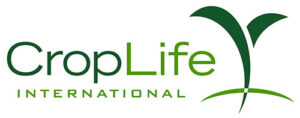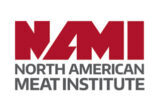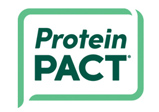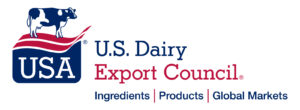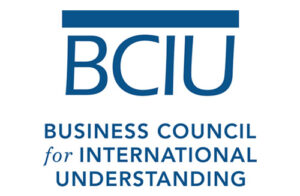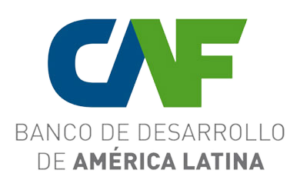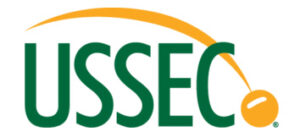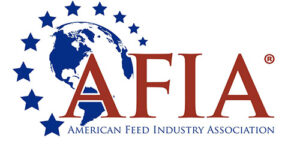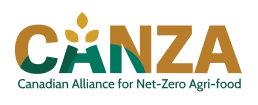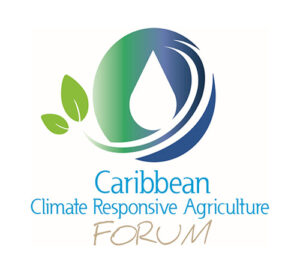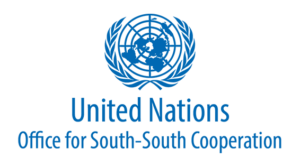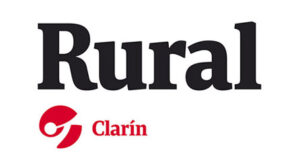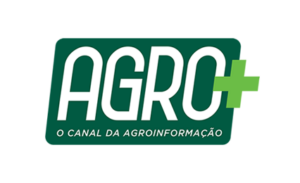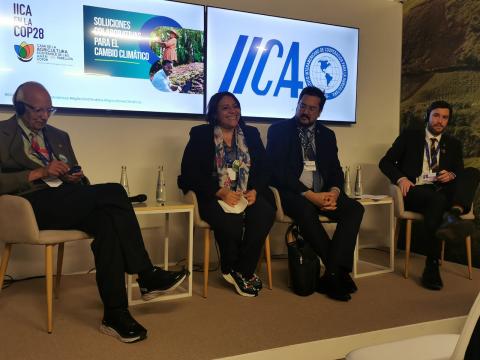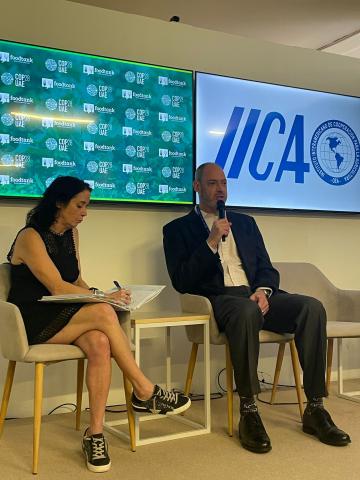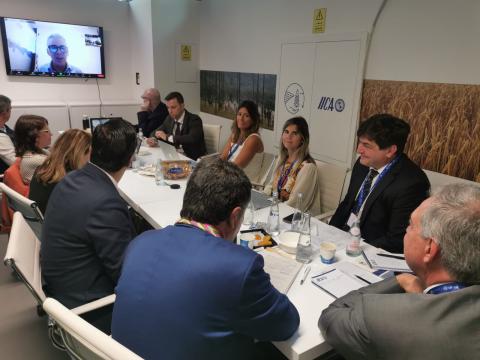The event
will start in
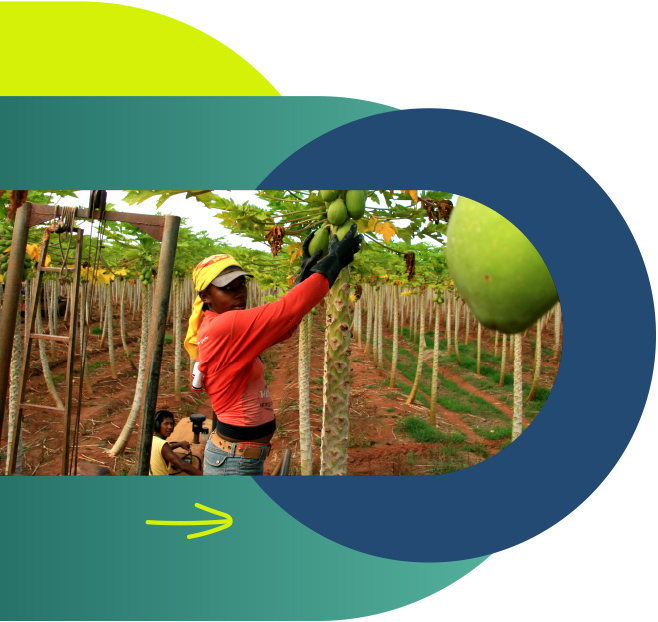
The challenge of adapting to climate change and producing more food
The Americas is a region that is key to the world’s food and nutrition security and its environmental sustainability. The Western Hemisphere produces approximately 28% of the planet’s agrifood exports, which in turn make a significant contribution to the region’s economy.
Agrifood systems in this region are facing daunting, climate change-related challenges, among them the need to produce using fewer natural resources and protecting the livelihood of millions of people, considering that the sector employs approximately 30% of the population of several countries in the Americas.
Climate change adaptation efforts should take into account the region’s producers, beginning with family farmers.
The Inter-American Institute for Cooperation on Agriculture (IICA) is taking this powerful message from its member countries to international climate negotiations.
Home of Sustainable Agriculture of the Americas
El IICA, junto con los ministerios de Agricultura de los países de las Américas y otras organizaciones aliadas, instalan en la Conferencia de las Partes (COP28) de Dubái este pabellón para albergar las discusiones de alto nivel sobre el rol de la agricultura regional en el combate al cambio climático.
The underlying thrust of this initiative is embodied in three key messages:
• Farmers should be central to all efforts,
• Decisions must be science-based and
• Agriculture should play a role in climate solutions.
We have stressed the immense opportunities for agriculture of the Americas to become more sustainable, productive and resilient, while strengthening its position as the guarantor of global food security and a source of rural employment and well-being.
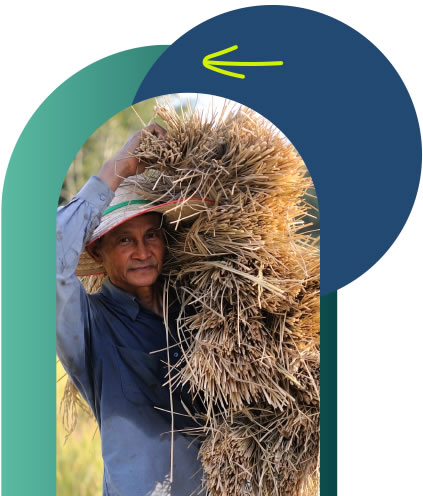
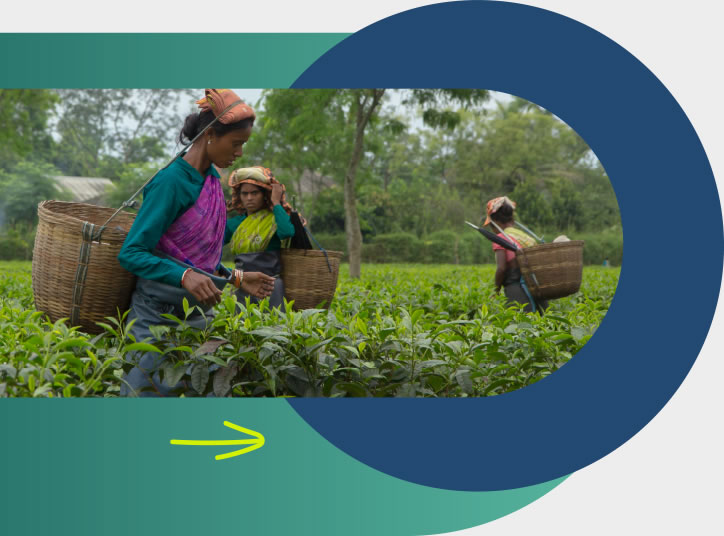
What is the COP?
The Conference of the Parties (COP) is the supreme political body of the United Nations Framework Convention on Climate Change (UNFCCC), which has 197 State Parties.
It holds a Summit once per year and global conferences in which technical experts, ministers, heads of state and representatives of non-governmental organizations take part. The decisions adopted at these meetings, aimed at achieving objectives in the fight against climate change, can only be taken unanimously by the Parties.
COP first met in Berlin, Germany in 1995 and the twenty-eighth edition will take place in Dubai, United Arab Emirates on 30 November to 12 December 2023.
Just as the COP Presidency rotates among the five recognized United Nations (UN) regions, that is Africa, Asia, Latin America and the Caribbean, Central and Eastern Europe and Western Europe and others, the venue of COP also rotates among these regional groups.
The last LAC country to hold the presidency was Chile for COP25, although the meeting was held in Spain. Peru, Mexico, Canada and Argentina are other countries in the region that have hosted the event.
About the United Nations Framework Convention on Climate Change (UNFCCC)
The United Nations Framework Convention on Climate Change (UNFCCC) is an international treaty that provides a general framework designed to help countries tackle the challenges posed by climate change.
It has near-universal membership. The 197 countries that have ratified it are called Parties to the Convention.
The UNFCCC entered into force in March 1994, with the aim of stabilizing greenhouse gas concentrations at a level that would prevent dangerous anthropogenic (human-induced) interference with the climate system.
It states that “such a level should be achieved within a time-frame sufficient to allow ecosystems to adapt naturally to climate change, to ensure that food production is not threatened, and to enable economic development to proceed in a sustainable manner”.
The Paris Agreement, adopted at the COP held in 2015, is the main treaty within the framework of the UNFCCC. It calls for action by all the countries to prevent the increase in the average global temperature from exceeding 2ºC compared to pre-industrial levels, and the promotion of additional efforts that will keep the rise in global temperature below 1.5ºC.
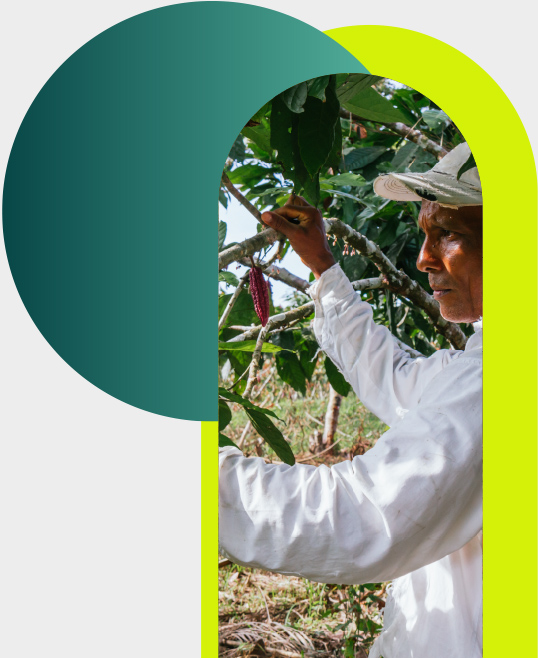

Home of Sustainable Agriculture of the Americas
The pavilion hosted by IICA and its partners at COP28 in Dubai (United Arab Emirates) is meant to serve as a platform to demonstrate and raise awareness of the role of agrifood systems of the Americas as a catalyst for climate solutions.
Named the Home of Sustainable Agriculture of the Americas, the pavilion seeks to give greater visibility to the contributions of producers and other regional agricultural stakeholders to overcoming climate change. It also seeks to generate new international partnerships to fund, accelerate or scale up the implementation of actions related to:
• producers’ views and leadership in tackling the climate crisis;
• Food security and resilience;
• Mechanisms to drive innovation, science, funding and markets for climate action;
• Solutions for the meat and dairy sectors, crops, soils, water and others; and
• Policy innovation for action.
The climate actions presented at the pavilion will pursue various goals, including adaptation, mitigation, soil health, water management, preservation of biodiversity, restoration of degraded areas and livelihoods, and measurement and monitoring of benefits.
Partners
The fulfillment of the Paris Agreement objectives is dependent on the contributions of agrifood systems of the Americas. The partners involved in the Home of Sustainable Agriculture of the Americas seek to foster the sector’s proactive participation in national and international climate processes, not only at COP meetings, but throughout the year as well.
The following partners collaborated with IICA to install the Home of Sustainable Agriculture of the Americas pavilion at COP28 in Dubai:



